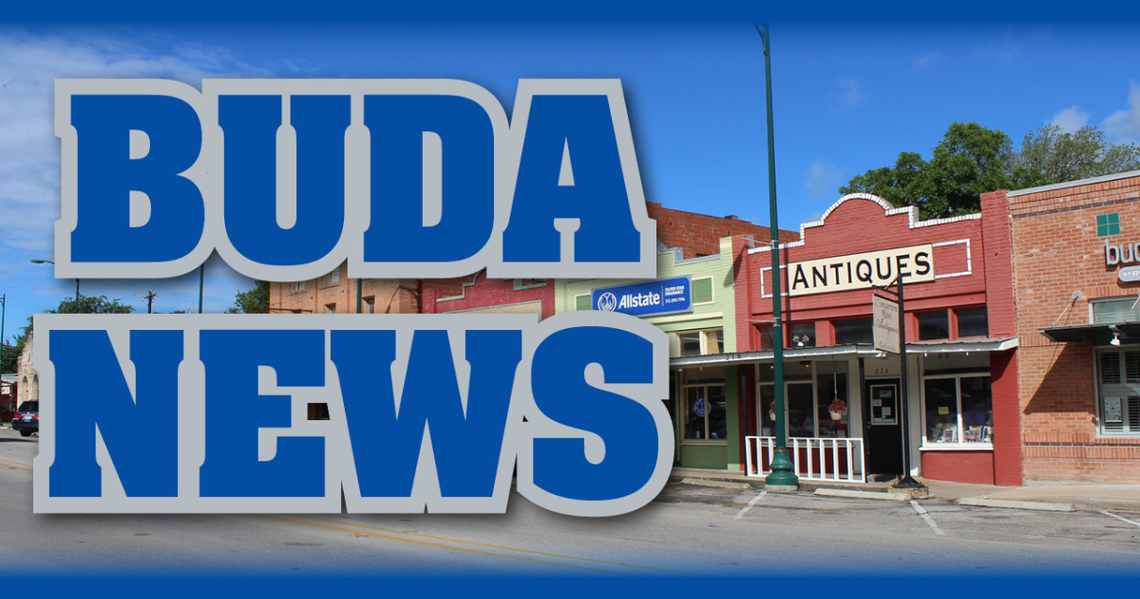BUDA — More than 16 months after the West Oak project development agreement was denied by Buda City Council, the development team was back on the agenda as a workshop item with a new proposal on Tuesday, Aug. 19.
As previously reported by the Hays Free Press, Buda Venture Real Estate initially presented a proposal to develop a 600-unit multifamily apartment complex with between 100,000 and 120,000 square feet of commercial space on a parcel of land on the west side of FM 1626 at Cole Springs Road. Despite the agreement being recommended for approval in a 4-2 vote by the Planning & Zoning Commission, following a lengthy public comment period, discussion on the dais and executive session, council voted unanimously to deny the project in April 2024.
At the most recent meeting, council heard details of the developer’s new plan for the land, based on feedback received from the city and community members last year.
The changes to the plan include the following:
• 63.5% reduction in housing units — 600 down to 219;
• Reduced from four stories tall to two stories tall;
• Rental apartments changed to for-sale town homes;
• Density lowered from 20.7 units per acre to 9 units per acre;
• Impervious cover decreased from 68% to 55%;
• Two pads with drive thru, versus four initially;
• Open space decreased from 6-acre private park to 2-acre open space;
• Retail decreased from 97,000 square feet to 40,000 square feet; and
• Amphitheater building removed.
Additionally, the proposed project includes 70+ Protected, Signature and Heritage trees saved, 5,000 feet of trails and $19 million invested in infrastructure, according to the presentation.
As a part of this updated proposal, the developer will request the creation of a public improvement district (PID) by the city. A PID is a funding mechanism where property owners fund improvements or maintenance cost via a tax that is beyond what the city or county receives. According to the West Oak presentation, this is a low-cost financing tool for public improvements dedicated, conveyed or leased for the benefit of the city.
The developer proposed an $11 million PID, to be paid back by property owners within the project area over 30 years.
Following the presentation, the floor was opened for council members to ask questions.
Council member LaVonia Horne-Williams started the conversation and asked about the housing units, which Stephen Simsic with Buda Venture Real Estate explained are approximately 2,000 square feet each and are expected to sell for $400,000.
“So, do you think that’s viable in the market right now,” she asked, which Simsic confirmed that they do.
“I’m going to trust that you are good with that because I’m thinking at 2,000 square feet, we’ve got homes right now in neighborhoods that are pretty well established that are 2,600 square feet and they’re not selling for $400,000,” Horne-Williams continued.
“The project moves forward along with the PID, so those other financing decisions and decisions on the market are made at the same time that we initiate the PID funding,” said Simsic. “So, we wouldn’t go forward with the PID if we didn’t think that we were going to sell the units … we have engineered this as far as we can go and the PID is essential to making the project work.”
Council member Matt Smith echoed Horne-Williams’ sentiments about the affordability of the town homes and potential owners being able to pay the additional PID tax.
“When we have a developer in front of us and they say, ‘Doesn’t work’, it means ‘Doesn’t make enough money for us,’” said Smith. “I can respect that, I absolutely can. We all work to make money, to support our families, but we never see that number; we are working totally blind up here.”
Smith explained that, when it comes to public financing, such as PIDs, the additional cost not only squeezes homeowners, but also the city and other taxing entities as to what they can reasonably expect homeowners to pay in the future.
“I believe bait and switch was mentioned earlier. That’s what we are feeling, that’s what we’re uphill treading here on this development,” he continued. “Because we saw something [that] looked like it was workable and then, every time it came back, it was a little bit different. This one, the financial piece of it is already a challenge. It’s a challenge for you guys to make the project work; we see the challenge it’s going to be on the homeowners, so that is something that we are going to collectively have to work out.”
Moving forward, the development agreement will go back to the Planning & Zoning Commission for review, before coming to council again. A PID application has not been received, according to city manager Micah Grau, but when/if the developer applies, that will be presented to council for consideration.
Due to the fact that this was only a workshop, no action was taken.
To listen to the full discussion, visit bit.ly/45QnoH9
Buda City Council will meet next Tuesday, Sept. 2.











